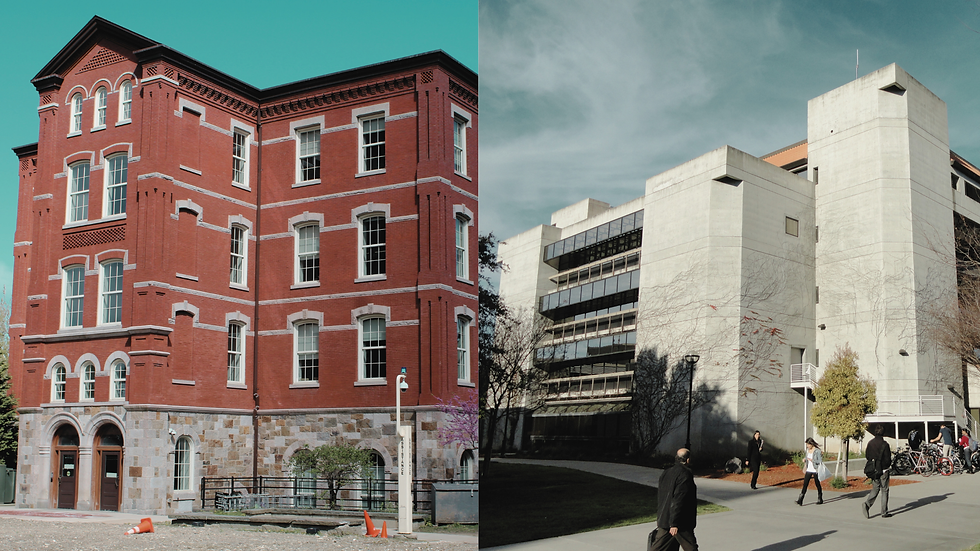Iran’s New Hostage-Taking Policy
- Ebby Abramson
- Nov 21, 2019
- 3 min read
Updated: Mar 12, 2022
Political hostage-takings are nothing new in Iran. Since the Islamic Revolution in 1979, Iran has repeatedly taken foreign nationals and dual citizens hostage for political gains. However, the detention of several dual citizens and western academics epitomizes a new trend.

Kylie Moore-Gilbert, a British-Australian professor of Islamic studies, was invited to attend an academic conference in Tehran and decided to remain as a tourist after the conference. However, she was then arrested and is being held in Evin prison. While the charges against her have not been disclosed, 10-year terms are routinely given in Iran for spying charges, and Moore-Gilbert has recently been conducting research into Shia opposition in the Persian Gulf countries.
Also being held in Evin is the historian XiYue Wang, a 37-year-old United States citizen of

Chinese descent. Wang was sentenced to 10 years in prison while researching Iran's Qajar dynasty for his Princeton University PhD and has been detained since August 2016 on the accusation of “archiving thousands of Iranian documents and having connections to American intelligence agencies.” Over the past two years, his wife, Qu Hua, has stated that her husband has attempted suicide during his time in prison.
Wang and Moore-Gilbert are not the only western academics incarcerated at the notorious Evin prison.
On July 5, the French-Iranian anthropologist Fariba Adelkhah was also arrested as she conducted research into Iranian society. Adelkhah, 60, is a director of research at Sciences Po’s Centre for International Studies (CERI). She is a well-known anthropologist and researcher on Iran and Shiite Islam. Adelkhah, who is believed to have been arrested by the Islamic Revolutionary Guards Corps (IRGC) on suspicion of spying, has traveled frequently between the two countries and even spent around half of the past 18 months in Iran where her family lives, friend and fellow academic Jean-Francois Bayart told AFP.

The very same day, Roland Marchal was arrested upon arrival at the airport in Iran. Sciences Po professor Richard Banegas, who has worked closely with Marchal, said that the arrest occurred when Marchal, a sub-Saharan African, visited Iran to see Adelkhah. According to Banegas, Marchal and Adelkhah were in a romantic relationship.
It’s unclear what charges these researchers face. Banegas told The Associated Press that he and colleagues consider Marchal “an academic prisoner.”

In addition, Ahmadreza Djalali, 45, a professor, physician, and researcher affiliated with the Karolinska Institute near Stockholm who focused on crisis management, was arrested in April 2016 on charges of “collaboration with a hostile government” while visiting his family in Tehran. Djalali was later accused of providing information to Israel to aid in the assassination of several senior nuclear scientists and, following a closed trial, was sentenced to death on October 20, 2017. The Iranian government has disclosed no evidentiary basis for the allegations, and Djalali has denied them, declaring that his ties to the international academic community are the real reasons for his incarceration. Recent reports and interviews with Djalali’s wife indicate that his health has deteriorated in prison; he has, for example, lost over 25 kilograms (approximately 55 pounds). Despite Djalali’s poor health, however, his medical furlough request has been repeatedly denied. In December 2018, 124 Nobel Laureates sent a joint letter to the Iranian Supreme Leader, Ayatollah Ali Khamenei, requesting him to intervene personally in this case and to assure Djalali receives a fair trial and subsequent exoneration and release.
Iran has treated western academics with mistrust since 1979, and Iran has a notorious history when it comes to arresting western journalists and researchers. Some of those arrested were quite simply negligent, traveling, for example, to Iran for an interview without a press visa; others, such as The Washington Post correspondent Jason Rezaian, were experienced authorities on the country.
The recent detention of academics represents a new dimension to Iran’s political hostage-takings. That is why we at Endangered Scholars Worldwide are deeply concerned about the arbitrary detention of dual nationals in response to their exercise of the rights to academic freedom, free expression, and free association, conduct that is expressly protected under international human rights instruments including the Universal Declaration of Human Rights and the International Covenant on Civil and Political Rights, both to which Iran is a party. We believe that universities and academics around the world must take a firm stance when academic freedom is threatened because, ultimately, the global challenge of defending that freedom requires collective and institutionalized action.




